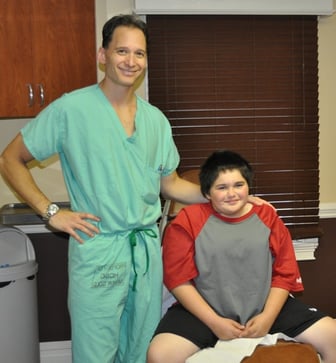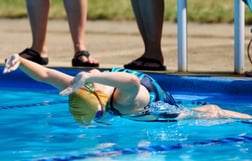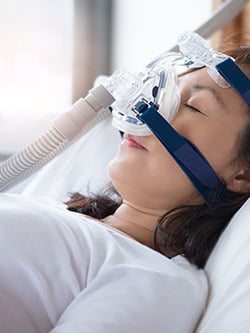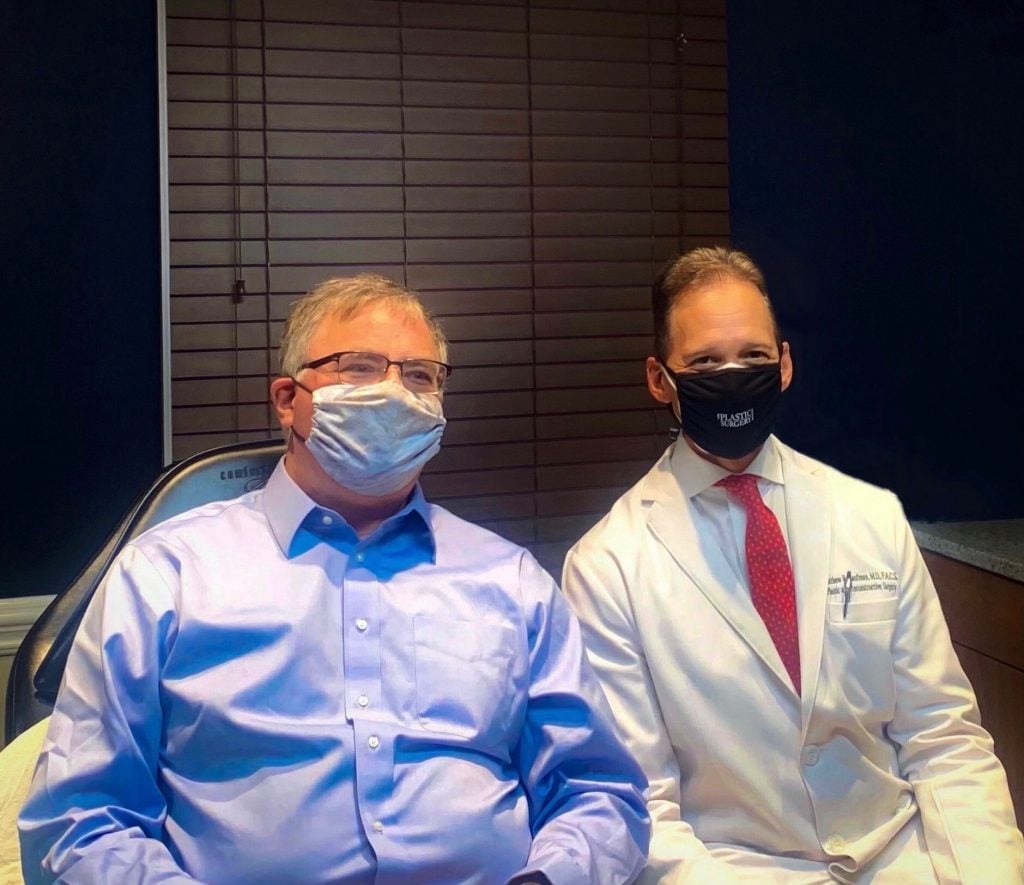Pediatric Phrenic Nerve Procedures—Children Find Renewed Life with Groundbreaking Surgery
Dr. Matthew Kaufman is the Only Known Surgeon to Perform Unique Phrenic Nerve Surgery
Young people are benefiting from a groundbreaking procedure to solve a medical problem that, for the most part, rules their lives. Of the nearly 75 phrenic nerve surgeries performed since 2007 by Dr. Matthew Kaufman of The Institute for Advanced Reconstruction, the only known physician to conduct this surgery, several young patients are testimony to the potentially life-changing benefits of this procedure.
The phrenic nerve controls the function of the diaphragm muscle – the primary muscle involved in breathing. Contraction of the diaphragm muscle permits expansion of the chest cavity and inhalation of air into the lungs. Injury to the phrenic nerve causes everything from severe shortness of breath to frequent bouts of pneumonia.
Twelve-year-old Tristin Loitz of Fairbanks, Alaska, had Klippel-Feil Syndrome, a devastating disease characterized by a fusion of any of the cervical vertebrae, potentially causing severe damage to major organs. Tristin was banned from all contact sports—primarily his beloved football– due to two missing discs in his neck. Tristin, with a medical school student’s grasp, describes his ordeal. “Klippel-Feil affects one in 42,000 kids. Doctors went through an MRI looking for bone cancer or scoliosis.” The multiple trips to doctors over the years led Tristin to ask his mother, “Am I going to die?”
It turned out, however, that aside from the missing cervical discs, Tristin’s only remaining problem was the diaphragm paralysis caused by his paralyzed phrenic nerve. After four years of desperation at a variety of doctors as far from their home as Seattle, the family ultimately heard the same line that has become universal with Dr. Kaufman’s phrenic nerve patients. “You’re just going to have to live with it.”
It was difficult enough for 10-year-old Grace Doran of Cherry Hill, New Jersey, to endure treatment for lymphoma. But when she attempted to resume the sports she loved, she couldn’t even swim two laps in a row. Pale and out of breath, Grace was devastated. Because her lymphoma was mostly in her chest, including the largest tumor (10 centimeters), physicians believe this caused the destruction of her phrenic nerve, which resulted in diaphragm paralysis and the ensuing chronic shortness of breath, sleep disturbances and lower energy levels. Like Tristin, Grace and her family were told: Learn to live with it.
Dr. Kaufman, who has operated on patients as young as 10 and as old as 70+ and from around the U.S. and Australia, has a 70-80% percent success rate, which is consistent with other nerve surgeries that have been around for many years.
Both Tristin and Grace found Dr. Kaufman and underwent phrenic nerve surgery. As a result, their lives have radically improved. Tristin was operated on at Jersey Shore Medical Center in October 2012. Prior to surgery, he would turn blue from lack of oxygen, merely trying to run a few feet. Three months following surgery, he exercises vigorously almost daily, doing 20-30 minutes per session of cardio. He also goes to classes like any other student: repeatedly walking the sets of stairs in his school, which he could not do prior to his surgery. In addition, “He is more high-spirited,” reports his mother, Tracy. “He feels so much better being able to exercise (and play basketball),” she says.
Grace Doran had her surgery in June 2012. Eight months later, and both swim and softball seasons successfully completed, she is up to 5 ½ days of school, no naps, and her sports, and she needs far less medication. Before her surgery, she could barely function for a 3-hour day and needed significant medication and 12-14 hours per night of sleep.
Children present different physical and psychological responses to surgery and healing. Their inherent resilience and rates of healing make them good candidates for phrenic nerve surgery.
“In our two youngest patients with diaphragm paralysis, we have observed and demonstrated tremendous improvements in respiratory function after phrenic nerve surgery. Our publications in the medical literature reporting the successful outcomes of our first several adult patients will soon be superseded by one that is much more comprehensive and includes the results of both our adult and pediatric cases.”
Just a year ago, on her birthday, Grace Doran was in the hospital yet again. This time, on October 30, 2012, when she turned 12, she got her much-desired gift: a cell phone. Tristin Loitz recently got a gift as well: a home treadmill. Most children dislike exercise for its own sake. Not Tristin. He asks her mother every day to go on that treadmill.








